How can I create Tree View Visual in an IntelliFront BI Dashboard?
This article will help you to create a Tree View Visual dashboard item to data. A Tree View is ideal to filter data in a dashboard.
Dashboard - Tree View
When creating a dashboard item it is important to know what you want to display. We recommend having some questions in mind of what you want the dashboard to show before you start creating it.
The Dataset used in this dashboard is a sample of a Human Resources data. The Dataset contains information about Age, Gender, Marital Status, Name of the employee, Department, City, etc.
I would like to find out the following from the Dashboard:
- Where were most employees acquired from?
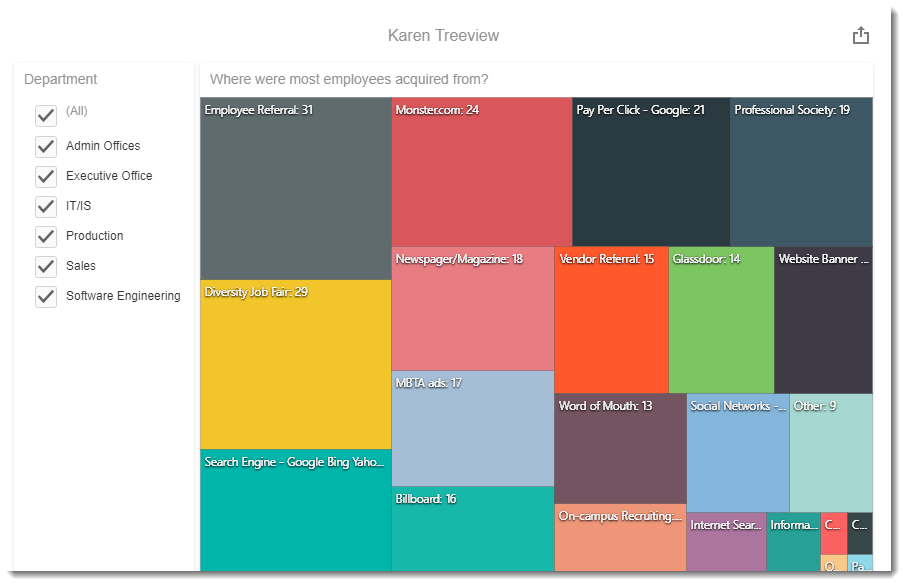
- To create this visual, begin by selecting Tree View.
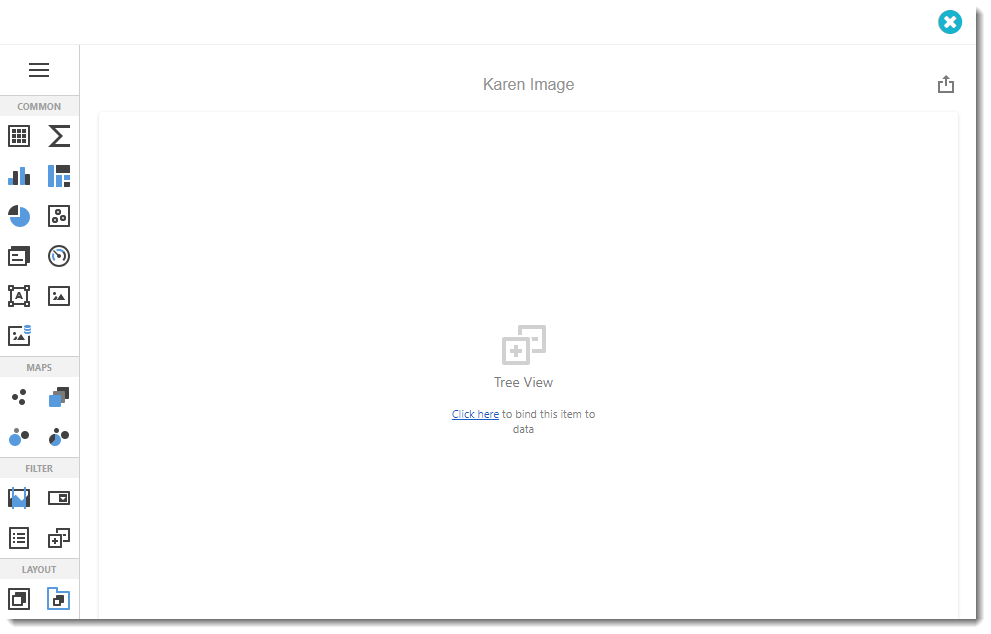
- The Tree View is a dashboard visual to be used with other dashboards items to filter their data.
Binding Menu
- Use the Click here to bring up the Binding Menu. The Binding Menu allows you to create and modify the data selected for the dashboard.
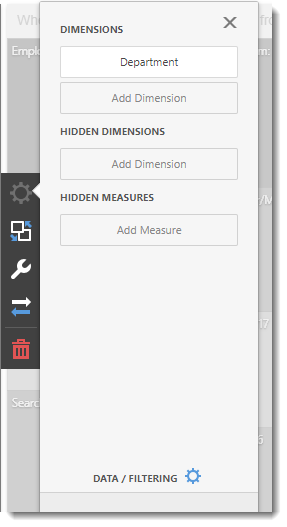
Dimensions
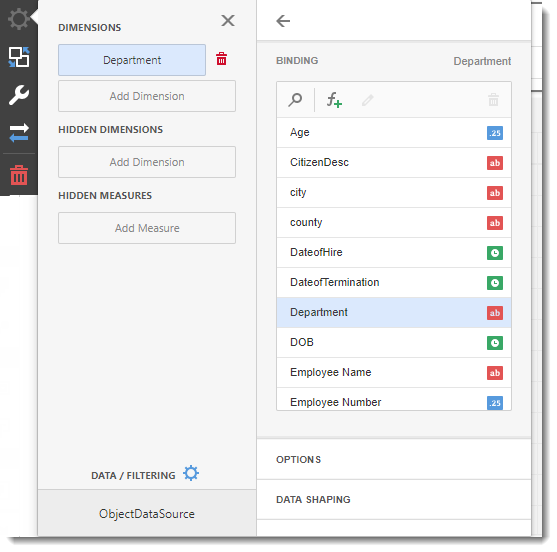
- The Dimension section contains data to create Tree View.
Binding
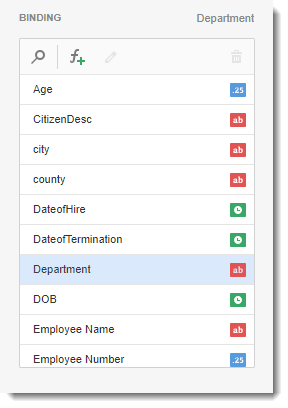
- Select the value for the information you are going to show.
For the example above I am going to show the Department.
- You may need to use a calculated field. To create a calculated field use the F+ button. You will need to use SQL Queries for this.
Please seek assistance from your IT department as we do not provide SQL Query support.
Options
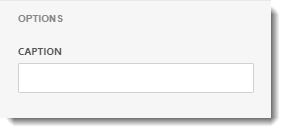
- Caption: This is the heading for the Dimension selected. It is best to caption the visual with a variation of the question asked at the beginning of creating the dashboard.
Data Shaping
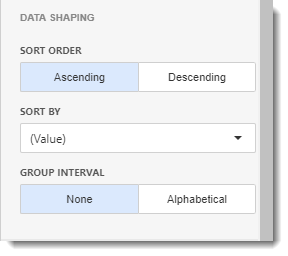
- In this section, you can change the sort order of the value.
- Sort Order: You can select Ascending or Descending sort order.
- Sort By: Select the value you want to sort this data.
- Group Interval: You can set group intervals by alphabetical or none.
Top N
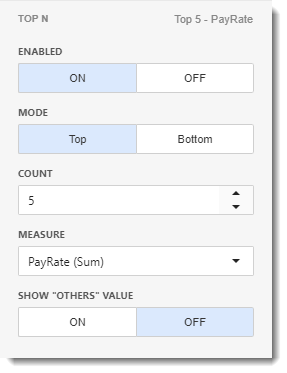
- In this section, you can customize the display number of values that correspond to the highest or lowest values of a particular measure.
- Enable this option by clicking ON.
- Mode: Specifies whether top or bottom values should be displayed.
- Count: The number of Values you want to display.
- Measure: The measure selected which the top or bottom values will be determined.
- Show "Others" Value: If enabled, all values that are not shown in the top/bottom ones will be displayed in the "Others" value.
Hidden Dimensions/Hidden Measures
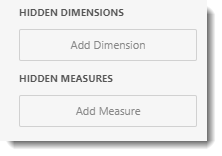
- This section is used to utilize a field without displaying in the dashboard item. Adding the Hidden dimension or measure, you can sort any values in the data by that specific dimension/measure.
- This section is to sort or filter the visual dashboard in order to get more detailed analysis.
- You can use Hidden Dimensions/ Hidden Measures with the following sections:
- Data/Filtering
- Data Shaping
- Common
- Top N
If the value is already added in the binding menu, you don't need to add it in the Hidden Dimensions/Measures.
In this example, we want to filter the top 3 departments with the highest pay rate offered.
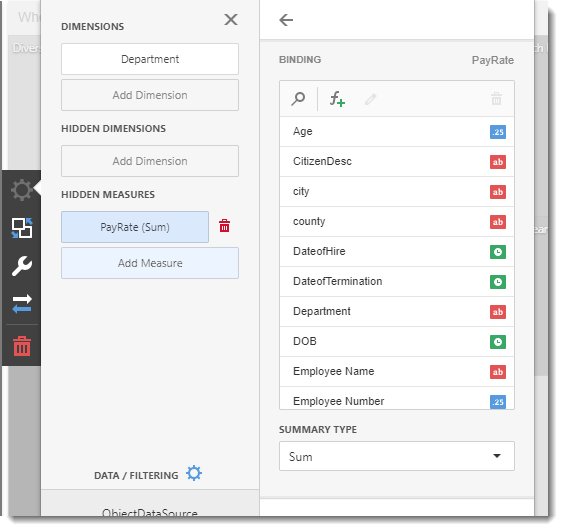
In this case, I want to look the top 3 departments with the highest pay rate offered. Select Dimensions and go to Departments. In Departments, select Top N. In Top N, enable this option and change the mode to Top. In count write down the number and in measure select Pay Rate.
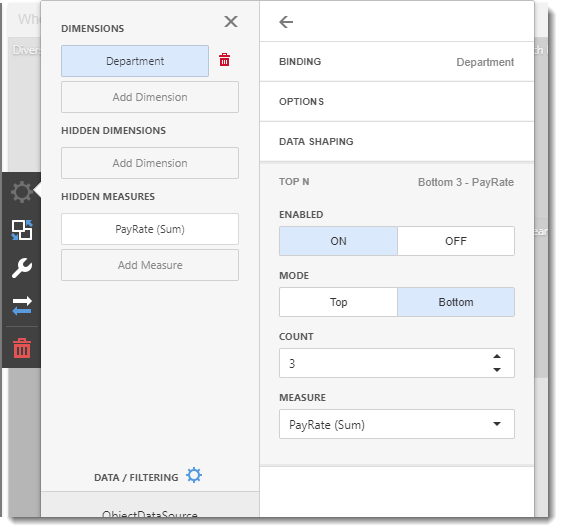
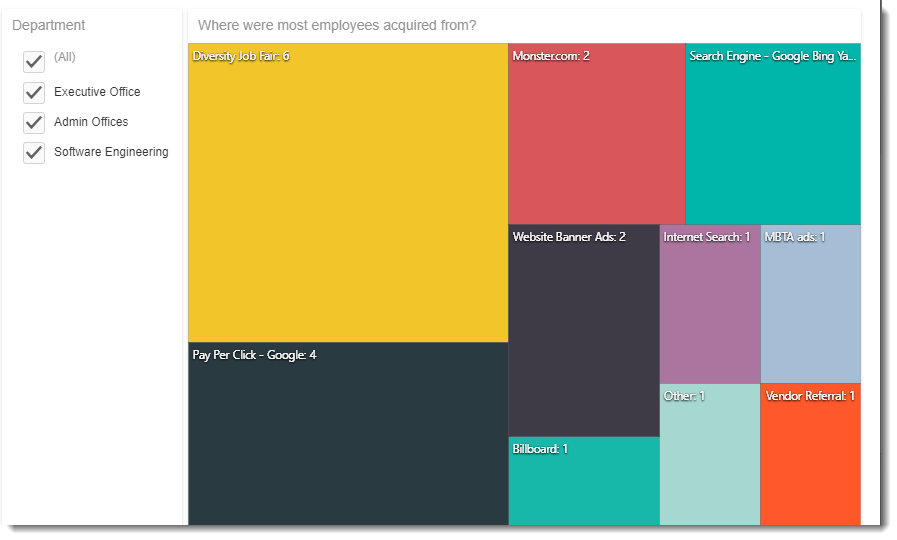
Interactivity Menu
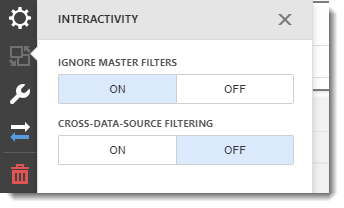
- Ignore Master Filters: You have the option to enable or disable Master Filters.
- Cross-Data-Source Filtering: In this mode, when different items in a dashboard are bound to different data sources, you can specify that a particular Master Filter should be applied across data sources. This means that it will apply filtering to fields with matching names in all data sources.
Options Menu
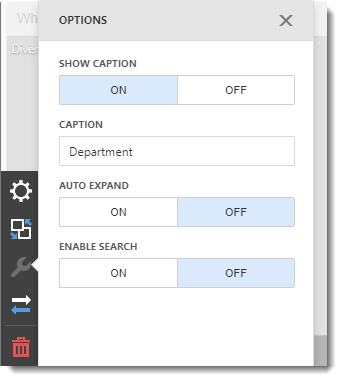
- Show Caption: You can enable or disable the visual caption.
- Caption: This is the heading for the visual selected. It is best to caption the visual with a variation of the question asked at the beginning of creating the dashboard.
- Auto Expand: You can auto expand tree view check lists.
- Enable Search: You can enable or disable the search option.
Convert To Menu
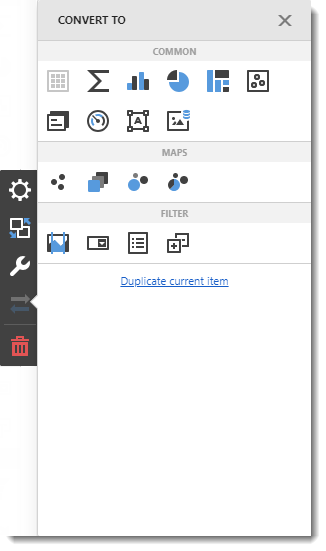
- In this section, you have the option to convert or duplicate the current dashboard item.
Remove Button

- Click on the remove button to delete the current dashboard item.